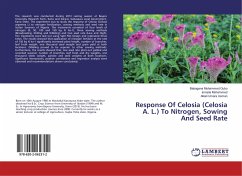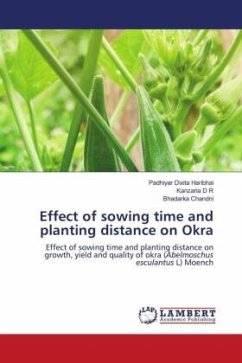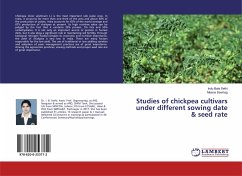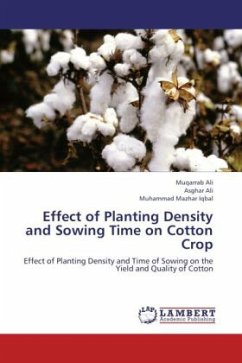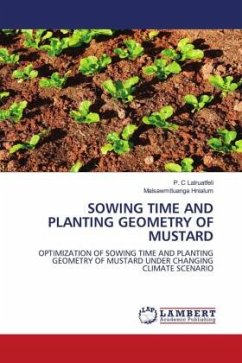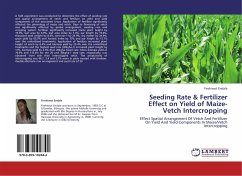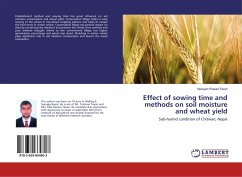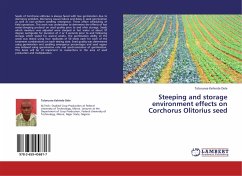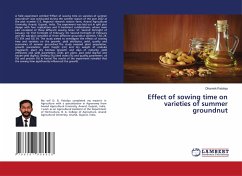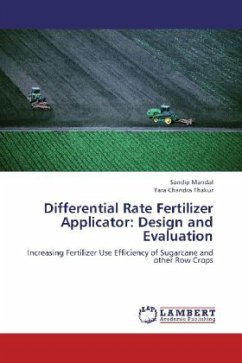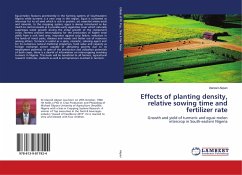
Effects of planting density, relative sowing time and fertilizer rate
Growth and yield of turmeric and egusi-melon intercrop in South-eastern Nigeria
Versandkostenfrei!
Versandfertig in 6-10 Tagen
36,99 €
inkl. MwSt.

PAYBACK Punkte
18 °P sammeln!
Egusi-melon features prominently in the farming systems of Southeastern Nigeria while turmeric is a new crop in the region. Egusi is cultivated as intercrop for its oil seed which is rich in protein, oil, essential amino-acids and minerals. In the cropping system, egusi is always introduced as live mulch to control weeds as it provides early vegetative cover which naturally suppresses weed growth during the initial growth of the component crops. Farmers practice intercropping for the production of higher total yields from a unit land area, insurance against crop failure, reduction in the level...
Egusi-melon features prominently in the farming systems of Southeastern Nigeria while turmeric is a new crop in the region. Egusi is cultivated as intercrop for its oil seed which is rich in protein, oil, essential amino-acids and minerals. In the cropping system, egusi is always introduced as live mulch to control weeds as it provides early vegetative cover which naturally suppresses weed growth during the initial growth of the component crops. Farmers practice intercropping for the production of higher total yields from a unit land area, insurance against crop failure, reduction in the levels of insect pests, diseases and weeds and better use of resources among others. Turmeric is useful as a spice, cosmetic, coloring agent and for its numerous natural medicinal properties, food value and capacity as foreign exchange earner capable of alleviating poverty due to its employment potential. In spite of the production and utilization potentials of both crops, there is a dearth of information on intercropping involving turmeric in Nigeria. This book will be beneficial to all farmers, agricultural research Institutes, students as well as entrepreneurs involved in turmeric.



